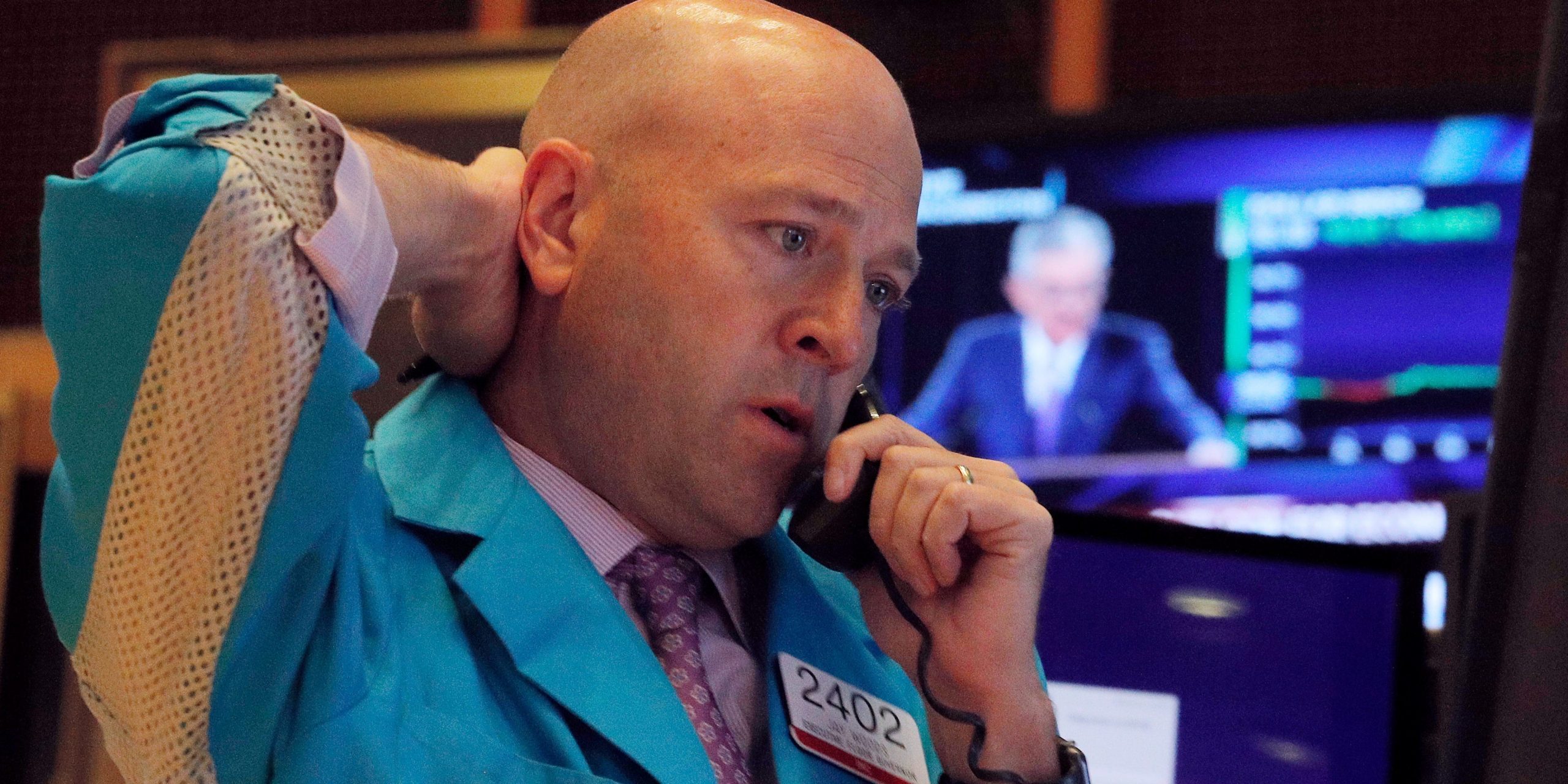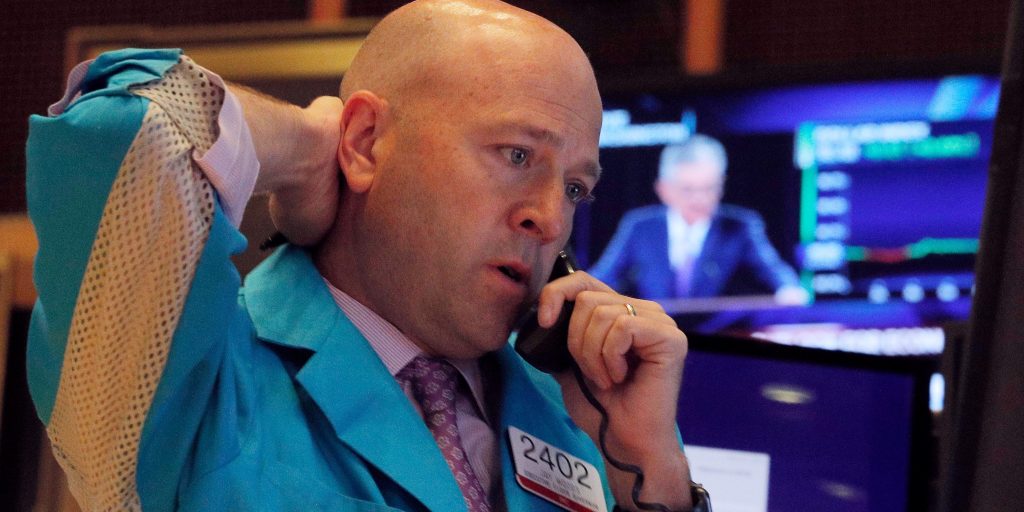
- US futures recovered some losses after Federal Reserve official James Bullard said rates could rise by 2022.
- He said the Fed's hawkish tilt is only natural given inflation is stronger than anticipated.
- Bullard predicted inflation will run at 3% in 2021 and 2.5% in 2022, before trending back to the Fed's target of 2%.
- Sign up here for our daily newsletter, 10 Things Before the Opening Bell.
US and European stocks recovered some losses on Monday after Federal Reserve official James Bullard indicated the central bank may need to raise rates in late 2022, as he said inflationary pressure is expected to pick up faster than previously anticipated.
Futures on the Dow Jones, S&P 500, and Nasdaq rose 0.2%, suggesting a slightly higher start to trading later in the day.
In an interview with CNBC on Friday, Bullard predicted inflation would run at 3% this year and 2.5% in 2022, before trending back to the Fed's 2% target. He isn't a voting member on the Federal Open Market Committee this year, but will get a vote next year.
Bullard's comments initially sparked a run for the exit door for equity markets and commodities while the dollar powered higher, Jeffrey Halley, a senior market analyst at OANDA, said. The Nasdaq still held up relatively well, as investors cycled out of growth stocks on the S&P 500 and Dow Jones and into the perceived safety of big-tech, he said.
However, UBS expects inflation to fall from current levels and believes persistent inflation above 3% is unlikely.
"While we don't think investors should be unduly concerned about inflation in the near term, we do recommend they take steps to protect their portfolios against potentially higher inflation over the long term," Mark Haefele, chief investment officer at UBS Global Wealth Management, said. "Some assets perform better than others in a higher-inflation environment."
Inflation, or the general rate at which prices climb, has become one of investors' greatest concerns when considering the ability of the US economy to fully bounce back from the coronavirus-led crash.
The St. Louis Fed President said due to the pickup in inflation expectations, it's only natural that the central bank would have adjusted its stance.
Bond prices reacted strongly to the Fed's hawkish pivot last week, with 10-year yields initially increasing over 8 basis points on Wednesday. But by the end of the week, the yield curve flattened significantly, with longer-term yields falling sharply as investors grew confident that the Fed would rein in inflation, or that there may be a policy error in the offing, according to Deutsche Bank analysts.
Elsewhere in Europe, stocks recovered losses in early trading. Investors will be watching for the Bank of England's key monetary policy decision on Thursday. Deutsche Bank economists expect the benchmark rate to remain at 0.1%, with no change to the size of the central bank's asset-purchase program, currently £895 billion ($1.2 billion).
UK mid-cap grocer Morrison's surged 30% after getting a takeover bid from a US private equity firm Clayton, Dubilier & Rice, although the offer was rejected. Shares in grocery-chains Sainsbury's rose 4.5% and Tesco rose around 2%.
Overall, London's FTSE 100 and the Euro Stoxx 50 fell 0.2%, while Frankfurt's DAX was about flat.
Asian equities followed Wall Street's initial sell-off after Bullard's comments by trading lower than other regions.
Japan's Nikkei fell 3.2%, Hong Kong's Hang Seng fell 0.9%, while China's Shanghai Composite was about flat.
